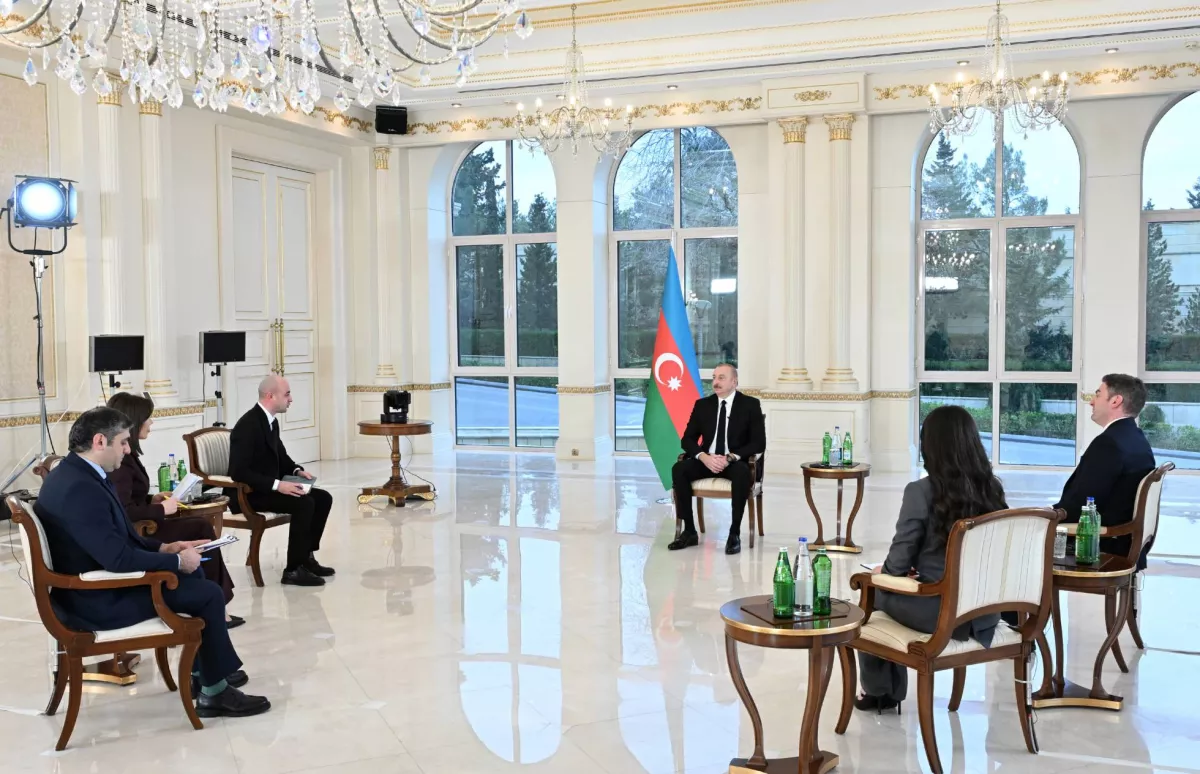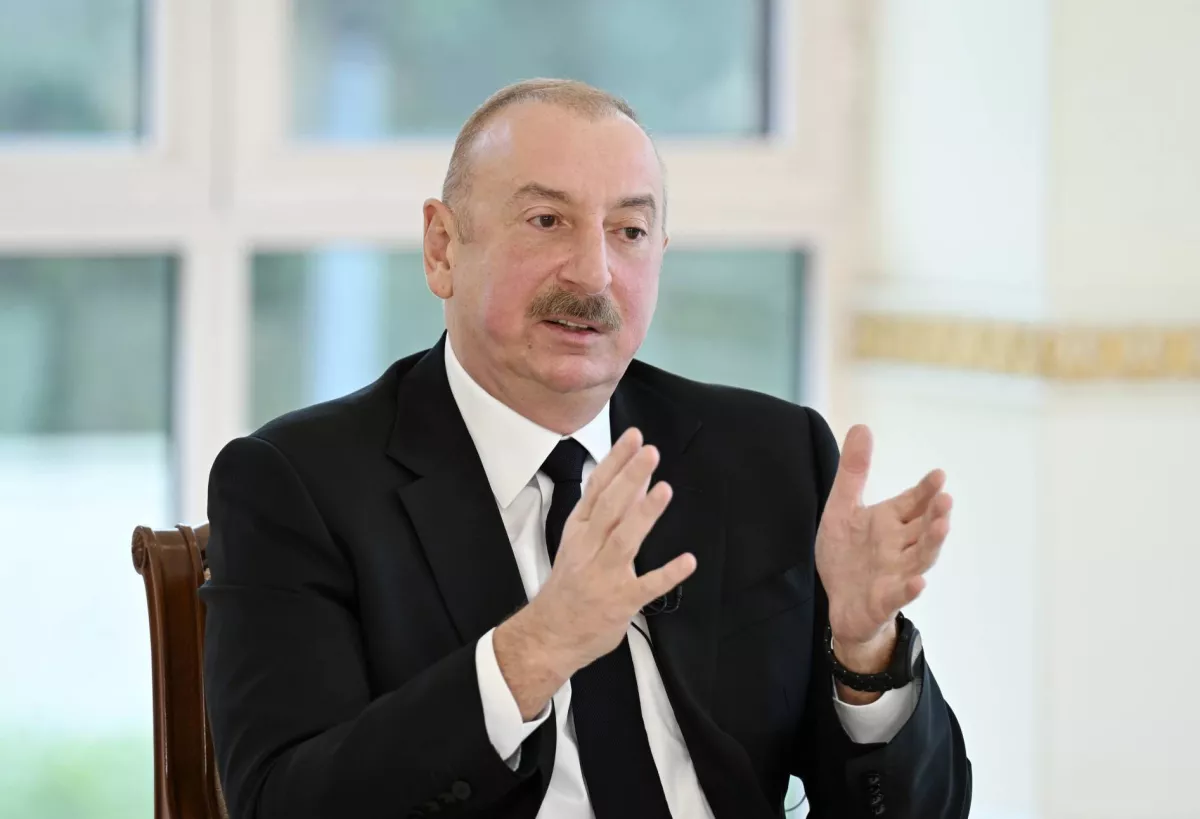The word of sovereign power Caliber.Az analyzes President Aliyev’s interview
On January 7, the President of Azerbaijan, Ilham Aliyev, gave an interview to local television channels. As is customary, the questions covered a wide range of economic and political issues, and the head of state provided detailed answers to all of them. In this article, we will try to analyze some of the key points and comments made by President Aliyev, which outline the principles of the country’s actions on the international stage, particularly in the context of the Armenia-Azerbaijan settlement.
During the conversation, the geopolitical context was outlined – leading Western countries are experiencing a political and moral crisis, and a new world order is emerging on the planet. "I believe that we are at the beginning of this process, many gaps are emerging and will emerge. The system that emerged after World War II has already lost its potential," said the president. In this complex international environment, all countries, without exception, are facing new challenges.
Touching on Azerbaijan's policy in the new global context, President Aliyev emphasized the importance of actively shaping the future rather than passively waiting for the new world order to unfold. He affirmed that Azerbaijan views the emerging order as one based on justice. The President underscored that, from Baku’s perspective, justice is rooted in sovereignty, independence, and the principle of non-interference in the internal affairs of other nations.
In the context of cementing new centres of power, the president mentioned Azerbaijan's entry into the Developing Eight (D-8) Organization for Economic Cooperation, also known as the Islamic Eight, positioning it as a significant player in the rupture created by the crisis of the old system. Aliyev added that D-8 has already expanded both to the Caucasus and the Caspian region and the broader its geography, the wider the organization's opportunities will be.
In a particular context of the crumbling old and the emerging new world order, Aliyev also mentioned the Organization of Turkic States: "...it is necessary for a new actor, a new serious player with a serious agenda, to emerge. For example, we believe that the Organization of Turkic States can become a serious power center on a global scale." The president's words reflected the strengthening of the Turkic world as an independent civilizational factor in global politics.

In light of recent breakthrough events in Syria, the president, as we perceive it, has mentally bridged the Turkic world and the Middle East. "Both in the Middle East and, at the same time, in Europe – we touched on this issue a little – a completely new situation is emerging, a strong Turkish factor will play a key role here. We are with Türkiye," he said. Comparing Aliyev's statements, we assume that the strengthening of Türkiye's role in Syria could provide a boost to both the integration of the Turkic and Islamic worlds and a more active role for the Turkic factor in the Islamic world.
However, despite Azerbaijan's growing authority in the Muslim world, relations with the Islamic Republic of Iran, due to Iran's own actions, remain far from ideal. Ilham Aliyev reminded of the background to the current cool status of relations between our countries, noting that the Iranian side deliberately escalated tensions, starting with the illegal passage of Iranian trucks into what was then a grey zone in Karabakh, and culminating in a recent incident where an Ardabil cleric insulted Azerbaijan and Turkey. Stating that the provincial mullah should be punished, Aliyev also addressed the Iranian leadership: "We know very well who appointed him. What is his reaction, does he support this or not, and who will apologize to Azerbaijan? Will they apologize or not?"
Of course, signals were also sent to Yerevan. Responding to a series of questions related to the Armenia-Azerbaijan settlement, the president once again demonstrated his principled stance, including on the issues of opening the Zangezur Corridor and the return of Western Azerbaijanis. The most memorable moment was the warning Aliyev made to Yerevan regarding Armenia's militarization policy: " I want to say again that we cannot just watch this as observers. Armenia must immediately stop arming. France and other countries that provide it with weapons must terminate and cancel these contracts. The weapons that have already been sent to Armenia must be returned. This is our condition."

Ilham Aliyev, as is well known, does not make empty promises. If he said that this is a condition, then that is exactly what it is. Moreover, this condition is not tied to a peace agreement; it stands as a condition in itself. However, Aliyev has so far tactfully refrained from mentioning the sanctions that will follow from Baku if this condition is not fulfilled. At this stage, the government in Yerevan would be better off recognizing this for itself and taking all necessary steps to establish peace and stability in the South Caucasus.
Touching on Azerbaijan's relations with the United States, Aliyev expressed hope that the elected president, Trump, would correct the harmful pro-Armenian course of his predecessor, Biden, whose rule he referred to as the "Soros government."
"Mr. Trump sends very clear, direct messages with his statements. Now, it might not be possible to analyze all of them, but I can say that the vast majority of them are shared by Azerbaijani society," said Aliyev.
Overall, Aliyev's speech conveyed a sense of confidence in the strength and power of the Azerbaijani state, its ability to defend its sovereignty, and, perhaps even more importantly, to play a significant role in the formation of a new, more just world order.








